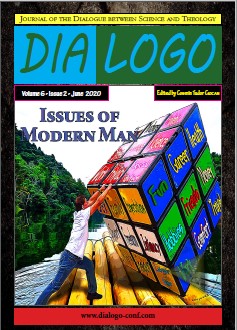The measures religious cults took in front of COVID-19: weakness or diligence?
The measures religious cults took in front of COVID-19: weakness or diligence?
Author(s): Cosmin Tudor CiocanSubject(s): Christian Theology and Religion, Islam studies, Comparative Studies of Religion, Politics and religion, Health and medicine and law
Published by: Dialogo Publishing House SRL
Keywords: Covid-19; pandemic; religion; religiousness; medical care; critical measures; digital; online; crisis; fundamentalism; Holy Communion; contradictions; social conflicts;
Summary/Abstract: While spreading wide-world, the new coronavirus Sars-CoV-2 made changes in many social departments of our society on levels we never thought about and messes with all our cultural habits. Thus, we witnessed that the religious denominations took into consideration changes without precedent in their cultic history and thus dogmatic as well concerning the actual threat of Coronavirus. We saw for example the Roman-Catholic Church who suspended all masses here and there [1] at first or banned the crucial gestures in rituals [to suspend the distribution of Holy Communion from the Chalice [2], to distribute the Eucharist preferably into the hands of the faithful, and to avoid the physical contact from a peaceful handshake, to forego ash crosses on forehead, to suspend placing water in holy water fonts at the entrance of churches, that the churchgoers “refrain” from kissing or touching the cross for veneration, or even cancellation of masses]. We witnessed Buddhist temples and Protestant churches around Korea [at first] and beyond that have also suspended religious gatherings, and so on. In my case, the Romanian Orthodox Church did the same thing [3], but in a controversial way, firstly making some recommendations for its believers [e.g. not to kiss public icons in Churches, but their indoor ones, and receive Holy Communion with teaspoons for single-use]; afterward same Church reconsidered these recommendations and withdrew its decision [perhaps at the pressure of civil fundamentalists]. How can we qualify all these measures and, moreover, the withdrawal on behalf of religious believers, as weakness, populism, diligence, assuming the human limits, or...something else? What would be the correct and coherent answer religion(s) should assume in this
Journal: Dialogo
- Issue Year: 6/2020
- Issue No: 2
- Page Range: 153-167
- Page Count: 15
- Language: English

